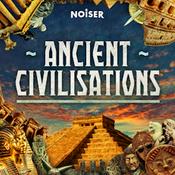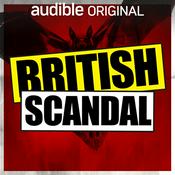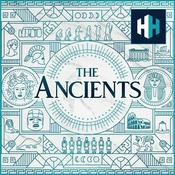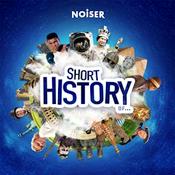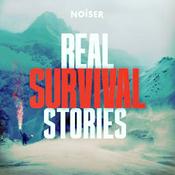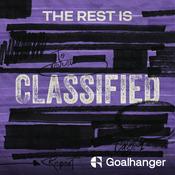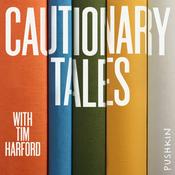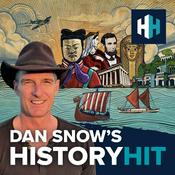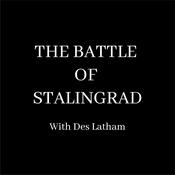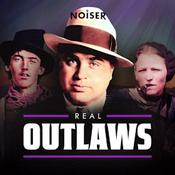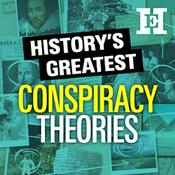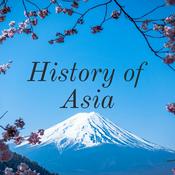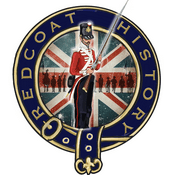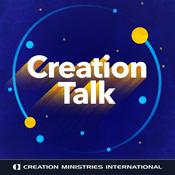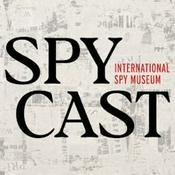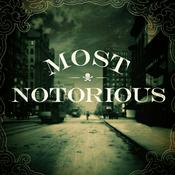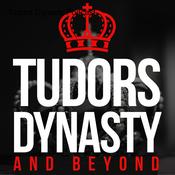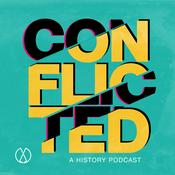347 episodes
- A quick scan of the hundreds of books on US-Russia relations gives the impression that the two countries only met in the 20th century. But relations go back to the early days of the American republic. And, surprisingly, throughout most of the 19th century, the United States and Russia were amicable powers joined in their mutual suspicion of Britain. Relations only began to deteriorate as the US increasingly entered global politics beyond the western hemisphere. What was the historical nature of American and Russian encounters? How did the relationship ebb and slow between distant friends and initiate enemies? And how did this dynamic shape self and bilateral perceptions? The Eurasian Knot turned to three of the best historians on the subject, Victoria Zhuraleva, Ivan Kurilla, and David Foglesong to talk about their new book, Distant Friends and Intimate Enemies: A History of American–Russian Relations about long history of the US-Russia dance.
Guest:
David Foglesong is a professor of history at Rutgers University.
Ivan Kurilla is a visiting professor at Ohio State University. In 2024, he left Russia after being dismissed from the European University at St. Petersburg for opposing the war in Ukraine.
Victoria Zhuravleva is Professor of American History and International Relations and Chair of the Department of American Studies at Russian State University for the Humanities.
Together they are the authors of Distant Friends and Intimate Enemies: A History of American–Russian Relations published by Cambridge University Press.
Hosted on Acast. See acast.com/privacy for more information. - The history of borders and nations in Eastern Europe is fraught. What we even call the region is a site of contestation. Is it “Eastern Europe,” “Central Europe,” or “East Central Europe”? For Pitt historian Gregor Thum, space and how it’s delineated matters. This is especially the case for Germany and its eastern borderlands and people. Empire, war, ethnic cleansing, and shifting borders have left their marks on regional identity and memory. To the point, as Thum explains, a simple photograph he took in Poland can be interpreted with suspicion. How did the German empire regard its east? How do its shifting borders continue to live with us today? And how do we wrestle with the fractured memories that inhabit the national bricolage of Eastern Europe? The Eurasian Knot spoke to Gregor Thum to highlight his scholarship for a Pitt REEES Faculty Spotlight.
Guest:
Gregor Thum is an Associate Professor in the History Department at the University of Pittsburgh. He specializes in the history of empire, forced migration and memory in Central Eastern Europe. He’s the author of Uprooted: How Breslau became Wrocław during the Century of Expulsions published by Princeton University Press.
Hosted on Acast. See acast.com/privacy for more information. - What is Russia? There’s no easy answer. Travelers, scholars, philosophers, and journalists have pondered the question for centuries. And though answers vary, there is one point of consensus–whatever Russia is, you won’t find it in large cities. “Russia” exists out there, deep in the countryside, in the small towns and villages. For journalist Howard Amos, Russia begins in the provincial city of Pskov. “Russia Starts Here” is its slogan, and Amos uses it to pry open the lives of the region's citizens in his first book, Russia Starts Here: Real Lives in the Ruins of Empire. Amos conducted over 30 interviews during his decade stint in Russia until he left after its full-scale invasion of Ukraine. There’s the elderly couple who are the last of their village. The shattered young family whose’ father was killed in Ukraine. The oppositionist politician that risks it all to push back against Putin. And the priest, Father Tikhon Shevkunov, Putin’s supposed “spiritual father.” The Eurasian Knot spoke to Amos about his reporting and being a reporter in Russia, what people told him about daily life, the war in Ukraine, and where the country’s been and where it's going. Did Amos find Russia? Maybe just a snapshot. The country is just too big and too complex for anything more.
Guest:
Howard Amos is a writer and journalist who spent a decade as a correspondent in Moscow. He left Russia in the days after the full-scale invasion of Ukraine, and, based out of Armenia, did a year-long stint as editor-in-chief of The Moscow Times in exile. His first book is Russia Starts Here: Real Lives in the Ruins of Empire published by Bloomsbury Continuum.
Hosted on Acast. See acast.com/privacy for more information. - A decade ago, Vladimir Alexandrov published an excellent biography, The Black Russian, about an unknown historical figure–Fredrick Bruce Thomas. Thomas was a Black Mississippian who moved to Imperial Russia and became a successful Moscow nightclub owner until Revolution forced him to flee. Thomas’ life is a window into post-emancipation Black American aspiration, struggle and cosmopolitanism. Alexandrov found Thomas such an intriguing character, he couldn’t let him go. So now, Thomas is the principle in a suspense novel set in Russia’s Silver Age. The Eurasian Knot spoke to Alexandrov about Thomas’ new adventure, the challenges of writing a novel, and where can we expect Fredrick Bruce Thomas to go from here.
Guest:
Vladimir Alexandrov, B. E. Bensinger Professor Emeritus in the Slavic Department at Yale, is the author most recently of The Black Russian, and To Break Russia's Chains: Boris Savinkov and His Wars against the Tsar and the Bolsheviks. He is currently completing a history of Russian involvement in the American Civil War, and the second novel in The Black Russian series. His first novel is The Black Russian and the Serpents Sting published by NIMCA Press.
Hosted on Acast. See acast.com/privacy for more information. - Alexander II’s Great Reforms were sweeping. They freed over 22 million serfs, overhauled the judicial, university, and municipal systems, and loosened censorship, among others. It was one of those pivot points in Russian history. If successful, Russia would have charted a more liberal path or stay on the autocratic road if a failure. Most historians have ruled them a failure. But what were the reforms trying to accomplish? What kind of Empire did it seek to create? Could they turn subjects of an autocracy into citizens of a nation? To discuss such a “big topic,” the Eurasian Knot spoke to Tatiana Borisova about her research into Alexander’s judicial reforms and their historical consequences. Can Russia’s attempt at reform in the mid-19th century provide some hope for a different Russia in the future?
Guest:
Tatiana Borisova is an Associate Professor of History at the Higher School of Economics St. Petersburg. Her most recent articles in English include: “Imperial legality through ‘Exception’: Gun control in the Russian Empire” and, with Jane Burbank, “Russia’s Legal Trajectories.” She co-edited, The Legal Dimension in Cold-War Interactions: Some Notes from the Field. Her newest book, in Russian, is Когда велит совесть: Культурные истоки Судебной реформы 1864 года в России published by Новое литературное обозрение.
Hosted on Acast. See acast.com/privacy for more information.
More History podcasts
Trending History podcasts
About The Eurasian Knot
To many, Russia, and the wider Eurasia, is a riddle, wrapped in a mystery, inside an enigma. But it doesn’t have to be. The Eurasian Knot dispels the stereotypes and myths about the region with lively and informative interviews on Eurasia’s complex past, present, and future. New episodes drop weekly with an eclectic mix of topics from punk rock to Putin, and everything in-between. Subscribe on your favorite podcasts app, grab your headphones, hit play, and tune in. Eurasia will never appear the same. Hosted on Acast. See acast.com/privacy for more information.
Podcast websiteListen to The Eurasian Knot, Ancient Civilisations and many other podcasts from around the world with the radio.net app
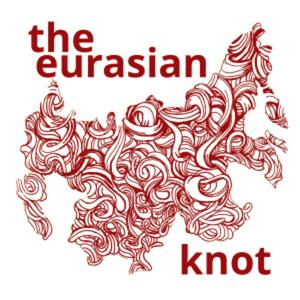
Get the free radio.net app
- Stations and podcasts to bookmark
- Stream via Wi-Fi or Bluetooth
- Supports Carplay & Android Auto
- Many other app features
Get the free radio.net app
- Stations and podcasts to bookmark
- Stream via Wi-Fi or Bluetooth
- Supports Carplay & Android Auto
- Many other app features


The Eurasian Knot
Scan code,
download the app,
start listening.
download the app,
start listening.


